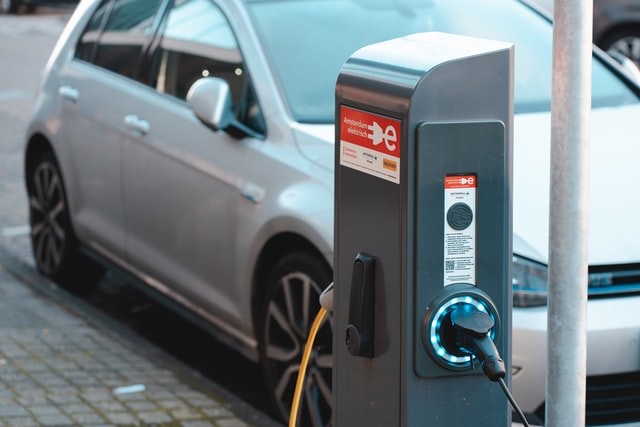We are constantly evolving. We are constantly developing new items and gadgets and technology that are helping us take strides forward that no one would have thought possible a few centuries ago. Even if a man from just 100 years ago notices the world we live in today, he would be shocked and live in denial. Ever since the very first cars hit the market, from the Benz patent Motorwagen to Henry Ford's mass-produced Model T for all Americans, cars have been evolving massively. A car from just a decade ago is barely comparable to the car that is being produced today. Even a few decades ago, you needed to go to a showroom to buy a new car. Nowadays, you can just browse a car buying portal and order it online.
It's all thanks to technology. Over the years, cars have gotten smarter and smarter, just like our phones. Cars have made big leaps, but the biggest improvements came in terms of the technology used in the car. The fundamental mechanics of the car remained the same. Yes, different types of engine configurations and clever engineering made some cars more famous than the others, but the fundamentals were the same - the engines ran on fuel. No matter how smarter the cars got, how powerful the engines got, they were still essentially the same internal combustion engines. The internal workings are the same and they require fuel to run.
Until very recently, since Tesla put electric cars on the roadmap, the mainstream market has started to notice its benefits and the industry is in the midst of a major transition from combustion engines to electricity. For the first in a century, the fundamentals of the engine would change and would no longer require fuel to run.
Electric cars are the future and they are already transforming the car industry. They have massive advantages compared to traditional ICEs. The biggest of them all is that they are emission-free. What this means is that they are clean, and can run on renewable sources of energy. Eventually, the production and running of electric cars would truly close together to "zero-emissions". ICEs are one of the primary contributors to the accumulation of greenhouse gases in the atmosphere. Believe it or not, the earth is slowly turning hotter and hotter with each passing year and climate change is real.
If we want our planet to remain habitable in the future, then we need to make the shift to EVs now. Already, some of the major American automakers have made commitments to produce electric-only vehicles by 2035. Even the President ordered half of all the new vehicles produced to be fully electric by 2030. Surely, that means that the industry is changing at a faster pace than ever. Cool new EVs from the world's leading manufacturers are coming our way.
One of the things that technology has enabled us to do is to make cars that drive themselves. Yes, the science-fiction concept of cars that can drive themselves is no longer science-fiction, but it is actual science. First put on the mainstream market by Tesla, the term "self-driving" came to be associated with electric cars since Tesla only makes electric cars. An electric car is sufficiently advanced enough to install the concept of self-driving cars.
Using a large array of sensors, radars, lasers, cameras, and complex algorithms, a car is able to effectively "see" its surroundings. We can classify self-driving cars into six levels, from Level 0 to Level 6; from no automation to a car that can fully drive itself without any inputs from the driver. It is not tough to see why self-driving cars are the future. Imagine being able to tell your car to take you to your destination, while you slowly prepare for your day ahead and sip your coffee. We are still a far cry from Level 6 automatic, but at the rate at which technology is evolving, it won't be much longer.
The automatic parking is another sweet technology. Leave your car in a parking lot, tell your car to find a parking spot for yourself by hitting a button on your phone. It will find a spot and park itself. When you return, ask your car to come back to you via your phone and your car will come to you. It will take a ton of time and will also avoid a lot of crashes and dents while parking into tight spaces.
One more massive application of self-driving cars is the fact that they will drastically reduce or completely eliminate accidents on the road. Taking human error and reaction time out of the equation, cars will run on computers and computers don't make mistakes. Computers don't get drunk and do not text while driving. If all the cars on the road are running on computers, there would be no chance for any error, and accidents would reduce dramatically. Sure, that would also add vulnerabilities such as hackers being able to remotely control your car, but that is a story for another time.
Also, another thing that might become common is ride-hailing. Ride-hailing is asking a driver to take you somewhere personally, and there would be no one else in the car, unlike ride-sharing. With more and more EVs and self-driving cars on the road, people would not need to own vehicles for themselves. They could just book a car and ask the driver to take them to their destination.
If the car is a self-driving car, then the passenger can trust the car to take him to his destination. There would be no need for him to drive the car himself, in case he didn't trust a human driver before. So, ride-hailing would also become more common. It would feel exactly like a personal car, without the need to share. If a person wants, he can also let his own EV drive him around; without the need to drive it himself. This would also make it a "ride-hailing", if you think about it.
No matter what technologies lie ahead of us, it is very much certain that electric cars are the future. The sheer number of advantages that they provide over regular gasoline cars are convincing enough. We also talked a lot about the advantages that self-driving cars will bring. From being a far-fetched concept to reality, these cars will completely revolutionize the way we interact with our daily transports and how we make use of them. It is pretty exciting to contemplate about the future that lies ahead of us. We are not exactly sure how precisely it would turn out to be, but we have a pretty clear picture and it instills nothing but excitement.
* This is a contributed article and this content does not necessarily represent the views of sciencetimes.com














![Earth's Quasi-Moon Kamo‘oalewa Could Originate From Lunar Surface Not Asteroid Belt [Study]](https://1721181113.rsc.cdn77.org/data/thumbs/full/53275/258/146/50/40/earths-quasi-moon-kamo-oalewa-could-originate-from-lunar-surface-not-asteroid-belt-study.png)
